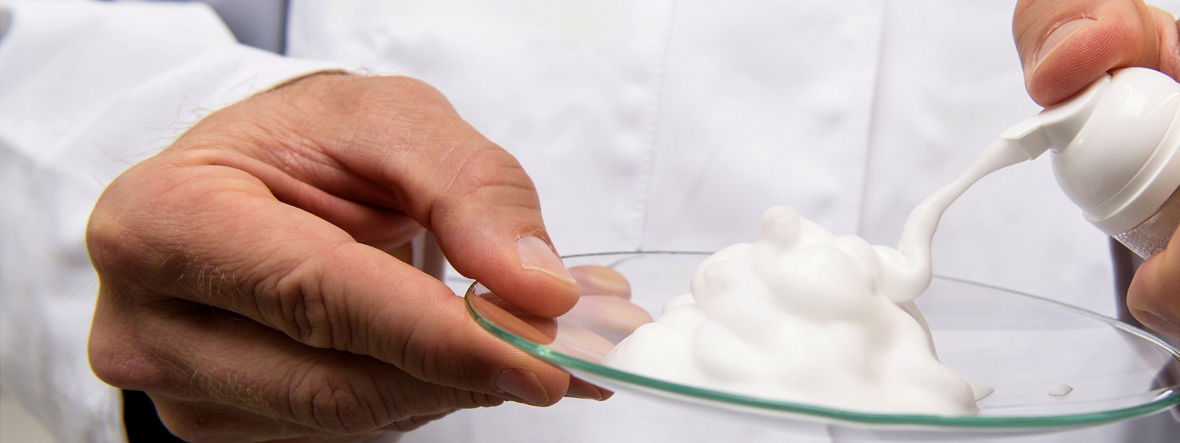Mr. Nijhuis, if Unilever decides to launch a product such as the Quix Hand Dishwash with a new composition, what criteria do you apply?
No matter what product we launch anywhere in the world, it has to perform—and for a dishwashing product, performance means above all that it has to clean. It has to remove grease, remove stains, and leave plates and glasses shining. It must also produce the right amount of foam. But that’s not all. People are increasingly concerned that their cleaning products might have a negative impact on the environment, so making our top-performing products environmentally friendly and offering additional benefits, such as noticeable mildness to the skin, creates the sweet spot for a successful new launch.
Why did you choose Chile as a test market?
Our data show that environmental awareness is growing there and thus the demand for more sustainable products is increasing.
…and the dishes are still mostly washed by hand.
Exactly. Dishwashers are particularly common in the USA and Europe. In the rest of the world, washing dishes is still done mainly by hand every day, and that means people spending a lot of time with their hands in soapy water. In Chile, we already had a product formulated for sensitive skin. This seemed to us a great opportunity to launch rhamnolipids as surfactants in Quix, as it is renewable, biodegradable, and very mild on the hands.
What makes rhamnolipids so attractive for Unilever?
We have observed that there is a tension between “clean and green.” Green products are often expected to clean less well and that is sometimes true for traditional technologies. With rhamnolipids we have a green solution that cleans and is gentle on the skin and good for the planet.
Is sustainability an equally important driver for your company in all markets?
There are certainly differences from country to country. The level of air or water pollution as well as the economic environment affects consumer awareness. But in opinion polls, environmental concerns are very often high on the list of priorities in most countries. And our market research shows that a sustainable product is preferred to a conventional one—if it works well. But for us as at Unilever, sustainability is not just a growth driver. We also want to play our part in tackling the big problems of our world such as climate change or environmental pollution.
Unilever has a strong presence in emerging markets. What are the special requirements of these markets?
Many households have tight budgets. It is therefore important that we offer consumers very good value for money. That means an excellent product at a price people can afford.
»Environmentally friendly products must deliver the same performance as conventional ones or even better«
Bert Nijhuis
Do consumers accept a weaker performance if a product is more environmentally friendly in return?
Very few consumers are ready to do that. If we want to make sustainability an everyday reality, environmentally friendly products must deliver the same performance as conventional ones or even better. This is how we believe we can be successful in the marketplace.
How closely does Unilever monitor the market? What do you know about consumers before you put a product on the market?
We invest a considerable amount of time in talking to consumers to understand their needs and desires. Much of Unilever’s success is based on our ability to respond quickly to consumer needs.
Biosurfactants still play a relatively small role. Will these ingredients ever be more than just a market niche?
We think we are only discovering the potential of biosurfactants in the home. As more consumers look for top-performing products that are better for the environment, this is only the start of the journey for biosurfactants.
What role do suppliers like Evonik play in keeping their ecological product promises?
Our suppliers are often more than just suppliers. They are our technology partners—like Evonik. Any improvement in the performance and sustainability of our products requires a certain amount of technology. That’s why our suppliers are essential to the implementation of our sustainability agenda.
Right up to the joint marketing of products?
Yes, of course. Unilever and Evonik are jointly researching and developing in the field of biosurfactants. From a business point of view, joint commercialization makes perfect sense.



